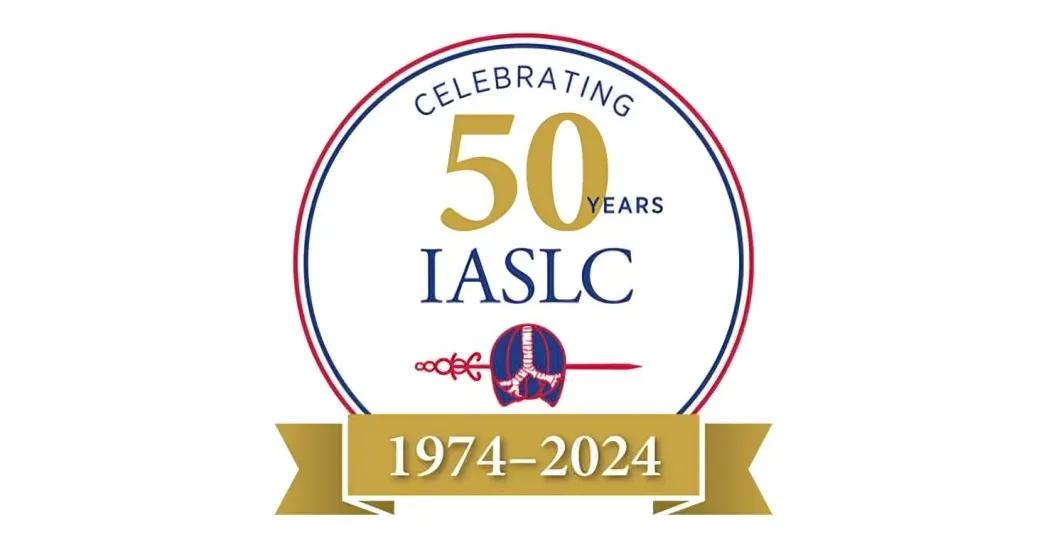- Center on Health Equity & Access
- Clinical
- Health Care Cost
- Health Care Delivery
- Insurance
- Policy
- Technology
- Value-Based Care
ICYMI: Highlights From WCLC 2024
The 2024 World Conference on Lung Cancer (WCLC) took place in San Diego, California, from September 7 to 10, 2024.
Presentations and interviews from our coverage of the 2024 World Conference on Lung Cancer (WCLC) concentrated on promising trial data, the potential and known effects of immunotherapy against non–small cell lung cancer (NSCLC), and thinking outside the box to improve and optimize patient outcomes. The meeting also marked the 50th anniversary of the International Association for the Study of Lung Cancer, which puts on the annual meeting.
This is our top WCLC coverage, and you can catch up on all of our conference coverage on our dedicated WCLC page.
5. EMPOWER-Lung 1 Trial Data Showcase Promise of Cemiplimab in NSCLC
In this interview with Ana Baramidze, MD, PhD, Todua Clinic, Tbilisi, Georgia, the topic of discussion was using immunotherapy in patients with NSCLC with lower expression of PD-L1 and advanced disease, in particular the PD-L1 inhibitor cemiplimab. Five-year data from EMPOWER-Lung1 show the monotherapy able to convey significant long-term survival benefits, Baramidze explained, reinforcing its long-term efficacy. As well, data show that higher PD-L1 expression correlated with better response to the monoclonal antibody.
4. Considerations for Immunotherapy Duration in NSCLC: Dr Heather Wakelee
The second expert on our top 5 list, Heather Wakelee, MD, Stanford University, also hit on the hot topic of immunotherapy in NSCLC, having participated in a conference session that addressed the pros and cons of indefinite or limited immunotherapy durations. Wakelee, who is professor of medicine, chief of the division of oncology, and deputy director of the Stanford Cancer Institute, spoke of the patient outcomes from a limited treatment duration. In this clip from her interview, she explained the key evidence supporting limited-duration immunotherapy and the potential for individualizing immunotherapy.
Our top coverage from the 2024 World Conference on Lung Cancer highlights the power of promising trial data and thinking outside the box to improve and optimize patient outcomes. | Image Credit: © International Association for the Study of Lung Cancer

3. WCLC Researchers Focus on Multifaceted Lung Cancer Treatment Toxicities
NSCLC diagnosis and treatment exert effects that extend beyond the obvious physical impact to include financial and emotional consequences as well. In this article, expert explained that more than half of patients experienced financial toxicity, with the effect more prominent among minoritized and younger patients compared with White or older patients. Time toxicity from clinical trial participation was another prominent impact, as was sexual well-being, with 88.4% of patients from one analysis agreeing that their clinicians should be assessing sexual dysfunction and 63.4% saying their experienced sexual dysfunction after starting treatment.
2. Experts Laud WCLC as Rare Opportunity for In-Person International Collaboration
This assembly of interviews from the 2024 WCLC explored why the experts we spoke with return to the annual meeting year after year. Many highlighted the power of in-person collaboration, with conference cochair, Sandip Patel, MD, medical oncologist and professor of medicine at the University of California, San Diego, noting, “Email is nice, video is nice, but seeing folks in person really takes it to another level.” Other experts in this compilation are Stanford’s Wakelee; John Heymach, MD, PhD, chair of the Department of Thoracic/Head and Neck Medical Oncology, University of Texas MD Anderson Cancer Center; Bellinda King-Kallimanis, PhD, irector of patient-focused research, LUNGevity Foundation; and Matthew Smeltzer, PhD, MStat, associate professor, Division of Epidemiology, Biostatistics, and Environmental Health University of Memphis.
1. HARMONi-2 Results Could Disrupt the Harmonious NSCLC Treatment Landscape
In this phase 3 trial that compared the novel bispecific antibody ivonescimab and pembrolizumab (Keytruda; Merck) for use among patients with stage IIIB to IV advanced NSCLC who were naïve to systemic therapy, ivonescimab bested pembrolizumab in progression-free survival, at 11.14 months vs 5.82 months. This equated to a 49% reduced risk of death (HR, 0.51; P < .0001). These disruptive study data were presented by first study author Caicun Zhou, PhD, MD, of Shanghai Pulmonary Hospital, Tongji University School of Medicine, in Shanghai, China, who explained, “it is possible that the therapeutic harmony we’ve had in this first-line space may finally come to an end, and I think that’s a disharmony we all should be rooting for.”
